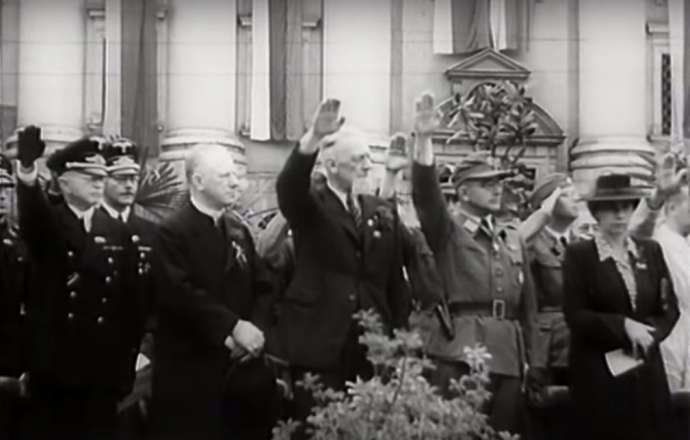STA, 9 January 2020 - The Association of WWII Veterans is appalled by the Supreme Court's annulment of the death sentence of Slovenian general Leon Rupnik (1880-1946), saying that numerous documents undoubtedly prove that he actively collaborated with the Fascist Italian and Nazi German occupation forces. Protest has also been expressed by the Social Democrats (SD).
The association promoting the values of the resistance movement in WWI said on Thursday it had received with indignation the report by the newspapers Dnevnik and Večer about the verdict against Rupnik being sent for retrial at the Ljubljana District Court.
Rupnik collaborated with the occupation forces during WWII as he served as the head of government of the Nazi-occupied Province of Ljubljana in 1943-1945, and was also chief inspector of the Domobranci collaborationist militia.
In May 1945, he fled to Austria, where he was arrested by the British and returned to Yugoslavia in early 1946. He was court-martialled and executed for treason and collaboration with the occupiers later that year.
One of his descendants, allegedly a grandson, had filed an appeal on a point of law, arguing that the verdict had not been sufficiently explained, that the reasons conflict each other, that his right to defence was violated, and that judges who had reached the verdict should have been excluded.
The appeal has now been granted by the Supreme Court, the verdict annulled and the case returned to the Ljubljana District Court for retrial.
The Association of WWII Veterans said in its response that Rupnik was also the mayor of Ljubljana under Nazi Germany and that he "led the treasonous fight against his own nation and subjected himself to the ideas of Nazism."
According to its president Marijan Križman, treason cannot be erased even with "bureaucratic pardon of the crimes that the traitors had committed against their own nation."
Court has thus become a tool for those who are not able to get over the shame and pain of treachery and use the judicial system for retaliation and spreading of hatred."
The Social Democrats (SD) said it would never accept "those who preferred collaboration with the occupier to the survival of the nation get acquitted," adding that Rupnik was "loyal to the alliance with the occupier to the last moment."
The party said that "untruthful interpretation of Slovenian history with rehabilitation of collaboration and Fascism" did not lead to reconciliation, but only takes Slovenians further away from dealing with the past.
The Jewish Cultural Centre Ljubljana also responded to the Supreme Court's decision with "indignation and concern", saying that it was the "first step in the politically-motivated aspiration to rehabilitate the criminal collaborationist regime during WWII".
It noted that Rupnik's police, under the leadership of the co-defendant Lovro Hacin, had organised in 1943 and 1944 arrests and deportations of Slovenian Jews from the Province of Ljubljana, with only a handful of them surviving the ordeal.






